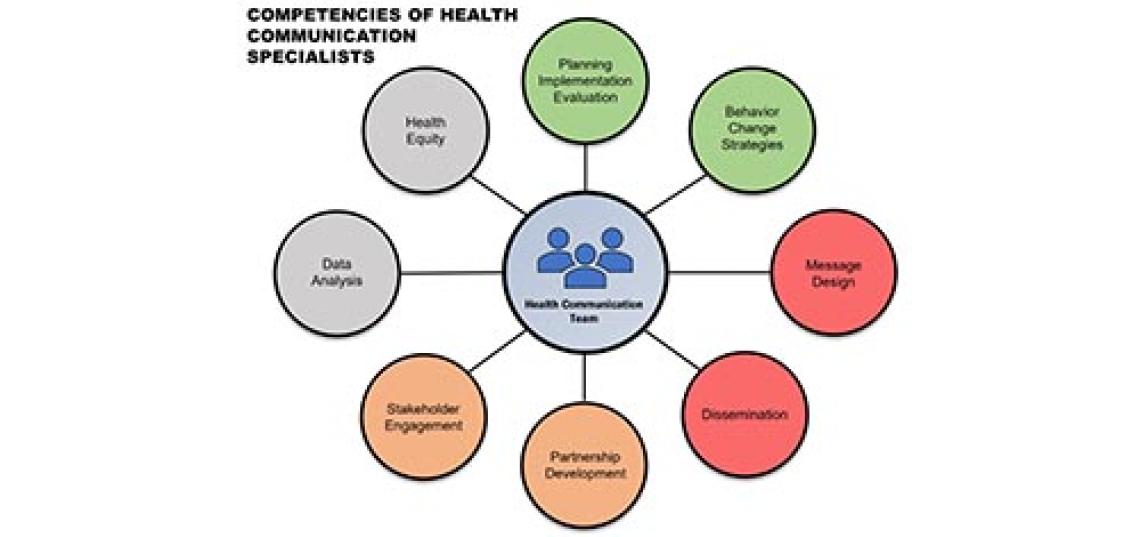
The National Academies of Sciences, Engineering, and Medicine (NASEM) has recently published proceedings from the workshop “Effective Health Communication within the Current Information Environment and the Role of the Federal Government” organized and hosted by the NASEM’s Board on Science Education with the support of the Robert Wood Johnson Foundation.
SC&I faculty members Associate Professor of Communication Katherine Ognyanova and Professor of Communication Itzhak Yanovitzky contributed to the workshop and the published proceedings titled “Effective Health Communication within the Current Information Environment and the Role of the Federal Government: Proceedings of a Workshop.”
William Hallman, Professor at the Department of Human Ecology at Rutgers, who chaired the workshop planning committee, invited Ognyanova to serve as a member of the planning committee.
NASEM hosted the workshop, Ognyanova said, “to explore the current information environment, focusing on the way health information spreads and the role of government agencies in that process. The workshop explored how the government can communicate effectively around health, how that information reaches people, and how we can study it.
“Some challenges that were discussed revolved around the role of large technological companies, and their tendency to restrict access to digital data. Approaches to dealing with this challenge have included regulation, especially in the European Union (less so in the United States). There was also a discussion of ethical considerations – issues of privacy, access to technology, and community self-regulation. There was also the important question of who is represented in the data – which populations and questions are privileged, and which ones are ignored, and how we can correct that.”
Ognyanova, as a member of the NASEM workshop planning committee, was primarily involved in the planning of the workshop session addressing “Digital Data and Information Systems.”
“Some of the larger themes and take-away points that emerged in this section included highlighting the importance of a public, shared infrastructure for a large-scale digital data collection,” Ognyanova said.
“Some of the larger themes and take-away points that emerged in this section included highlighting the importance of a public, shared infrastructure for a large-scale digital data collection,” Ognyanova said.
Yanovitzky was invited to speak at the event and contribute to the discussion regarding building expertise and human capital for effective health communication within the federal government (see Chapter 5: Capacity: Expertise and Human Capital).
The discussion here, Yanovitzky said, was focused on on better preparing health communicators in the federal government to effectively communicate with diverse audience groups in an increasingly challenging health communication environment. ”In my comments, I suggested that health communication ought to be recognized by federal health agencies as a critical organizational mission and not simply an afterthought, and that this requires systematic and sustainable investments in hiring and training teams of health communication professionals with complementary expertise in behavior change communication, data analysis and program evaluation, and dissemination and implementation, but also increasingly expertise in health equity, community and stakeholder engagement, and partnerships-building. Three areas should be targeted for future development and investments in a health communication workforce: professionalization (training and accreditation standards, clear career pathways, and communities of practice), expert and technical support (external expert panels, messaging development and pretesting platforms, etc.), and coordination and outreach support (including cross-agency coordination of health communication and building partnerships with relevant stakeholders to improve dissemination and engagement).”
”In my comments, I suggested that health communication ought to be recognized by federal health agencies as a critical organizational mission and not simply an afterthought," Yanovitzky said.
Ognyanova’s research examines the effects of social influence on civic and political behavior, confidence in institutions, information exposure/evaluation, and public opinion formation. Her methodological expertise is in computational social science, network science, and survey research. Her recent work examines the links between misinformation exposure and political trust. Ognyanova is one of the founders and a principal investigator for The COVID States Project—a large multiuniversity initiative exploring the social and political implications of the COVID-19 pandemic. Her research has been supported by the National Science Foundation and the Russell Sage Foundation. Her work has been covered in news outlets including The New York Times, NPR, Politico, The Washington Post, and WIRED, among others.
Yanovitzky is an expert in the areas of health communication, behavior change, and public policymaking. His program of research explores effective mechanisms for knowledge transfer from research to policy and practice and strategies for improving community engagement and capacity-building. He regularly partners with collaborators from across academic disciplines and sectors to address a range of public health challenges, including most recently efforts to address the opioid epidemic and the rising toll of youth depression and suicide. Yanovitzky is the immediate past-chair of the Health Communication Division of the International Communication Association and a member of NASEM’s Standing Committee on Advancing Science Communication. He was also a member of the planning committee for NASEM’s Workshop on Civic Engagement and Civic Infrastructure to Advance Health Equity.
Discover more about the Communication Department at the Rutgers School of Communication and Information on the website.
Image credit: Itzhak Yanovitzky
